
Two summers ago I was leading a rock climbing course in Squamish, B.C. and various Washington state crags. The climax of the trip was taking a group of twelve teenage boys multipitch climbing. With one day to accomplish this (between my co-instructor and myself), we chose a three pitch route called Great Northern Slab at Index, WA.
There were two problems. Number one, it was supposed to be well over 90 degrees that day. Number two, we had to do at least three laps each to get all the boys up the route.
For the non-climbers, this required climbing over 250 feet with two boys in tow, then having to rappel that 250 feet back down to the ground, all the while dealing with the emotional and physical safety of the entire team. With a well managed group we could complete each climb in approximately three hours.
It was going to be a long day.
Jeremy (my co-leader) and I got an early start. One lap in the early morning, one lap in the late morning, and one more lap in the heat of the afternoon. Some of the boys wanted to go again so we each did another lap in the evening.
The end result?
A 16 hour day, 97 degrees, 1000 feet of climbing, and two very exhausted instructors. We had succeeded in giving the boys their multipitch experience, but we had failed miserably at self care.
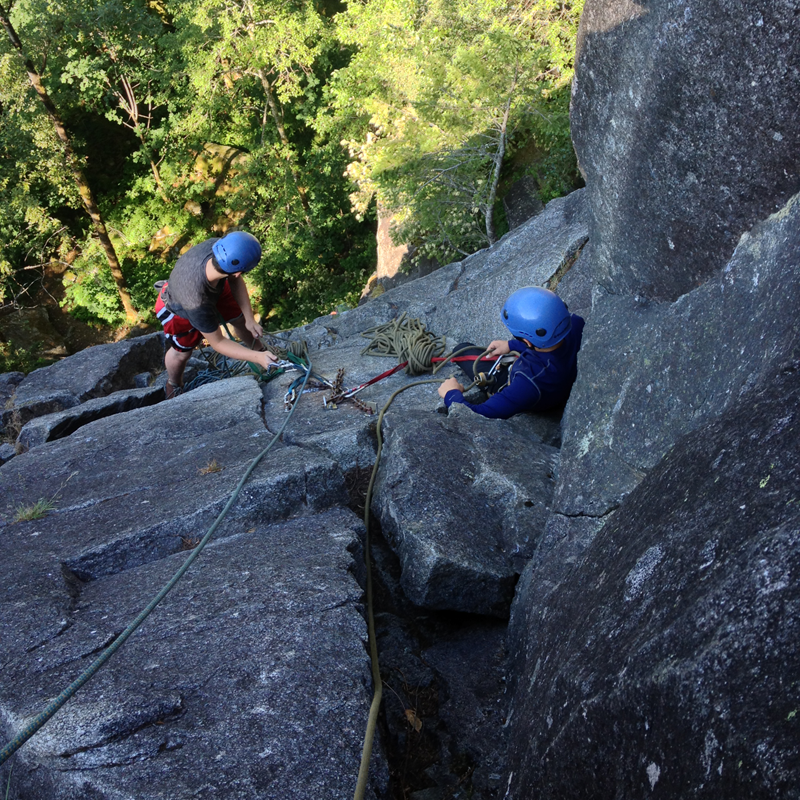
The concept is very straight forward, but the practice can be incredibly challenging. It's a two step process:
#1 - Self Awareness: What are your current needs? Are they being met? What would you need to do in order to meet those needs? How do your needs impact the group?
#2 - Self Care: Now that you know what your needs are, how will you actually follow through and see that they're met?
Essentially, self care is your body's checks-and-balances system, making sure you are running as efficiently as possible physically, mentally, and emotionally.
Think about when you get on an airplane. The flight attendant gives you a lovely talk about the various ways to deal with an emergency on-board. It goes something like this, "In the unlikely event of cabin pressure loss, oxygen masks will fall from the overhead compartments. Secure your own mask before helping others."
That is self care in a nutshell. You won't be able to care for others unless you've taken care of yourself first.
So here are some self care tips and check-ins you can perform, from head to toe...

Your ability to convince yourself you can safely make it to the summit is more beneficial than the best physical training. A positive outlook bolsters the entire group and propels you forward. A negative attitude denies the group of a fun experience. Sure, it's okay to voice your suffering, but put a positive spin on it.
A trigger is the release valve to an emotional explosion. It could be hunger, heat, exhaustion, group laziness, or many other things. Hunger, which is a very common trigger, gets a special word to describe it: Hangry: Anger caused by unsatisfied hunger.
Know your triggers, and be pro-active to avoid them.

Bonking is a term describing that moment when your eyes glaze over and you start running on autopilot. Generally a bonk results from not eating, becoming dehydrated, or layering incorrectly, though it could also just be from a very long day. It's the mid-afternoon lull, and it is not a great mental state for quality decision-making.
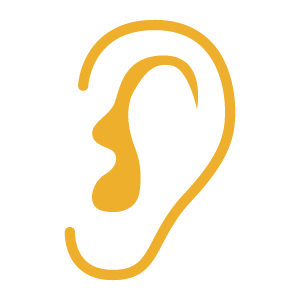
Whenever I take a short break, I run through a mental checklist. Am I hungry? When was the last time I drank water? How is my body temperature? How are my feet? Sometimes your body needs a reminder to think about simple things like hunger. Make it a habit to check in with yourself frequently.
If you are hungry, thirsty, tired, cold, etc... There is a good chance someone else in your group is as well. Voicing your needs can help them remember to take care of themselves.

The biggest roadblock to effective self care is the little voice in your head calling out, "don't tell anyone you're tired! They will just think you are a burden to the group."
WRONG. By speaking up and getting your needs met you are: 1) Ensuring that you will be operating at full capacity, and 2) Being a good role model for others.

If I had one superpower, it would be the ability to thermoregulate perfectly. When hiking, I recommend applying the 2 minute rule. You should have enough clothing on so that you don't sweat while traveling. When you stop for a break you should get chilled within 2 minutes. If you sweat while hiking you are wasting energy while also getting wet and that makes you colder. Instead, keep a layer handy and throw it on during breaks.
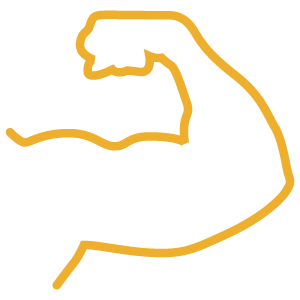
Superhero: A benevolent fictional character with superhuman powers. Sound like you? Unless you're superman, it probably does not.
When leading a group it's easy to act like a superhero. If someone is hungry you give them your extra bar, if they are cold you give them a layer. You always have to be positive, energetic, and helpful right? Wrong. (And also very tiring!)
The best leader is a self-aware one. The most accurate way to gauge a groups needs is to look at your own. Then role model pro-active self care by vocally addressing them and taking a break, getting a snack, or drinking some water.

It's not just leaders who fall prey to the superhero mentality. Each member in a group needs to address their self care needs first. You cannot help others unless you help yourself first. This is not selfish, it's a pro-active approach to keeping the group working efficiently throughout the entire day.

I try to eat something small at least every hour. This helps keep my body fueled and energized without being weighed down by a heavy mid-day meal. Check your hydration levels and make sure you're on target. Think of it as a game of optimisation -- you always want your body running at its best.
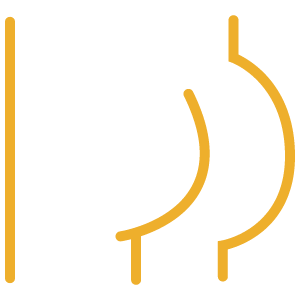
Resting is an art. It's essential to take some time off your feet, especially on a long hike. However too much time leads to tiredness and slow progress. Try a quick packs-on water break every 30 minutes, and a 10 minutes packs-off break every hour. Adjust this based on your groups' needs, altitude, weather, terrain, etc...
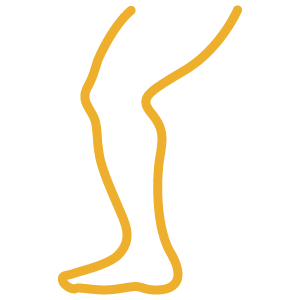
Hiking is not a race. Step aside and let the faster groups cruise past you. More often than not you will catch back up to them while they're panting for breath further up the trail. A slow and steady pace with minimal breaks is the most efficient strategy for a long hike, especially at high elevations. One great pacing check is to listen to how much the group is talking. If everyone is panting for breath slow things down, if everyone able to carry a conversation you are going at a sustainable pace.

Your feet are about as essential as vital organs while on a backpacking trip. Even a simple blister or cut can cause serious discomfort throughout the day. Check in with yourself while on-trail to feel for hot spots or new blisters. Check your feet every night for wounds, blisters, and cleanliness.
Taking care of yourself is one of the hardest things to do on a trip. Set yourself up for success with quick check-ins every hour or so, and a longer one at the end of the day. A habit of mine is to spend at least 30 minutes to myself sometime before dinner. During that time I will check in with my body and clear my head for the next day.
Develop a routine and self care will become effortless, allowing you to better serve the group and increasing your level of enjoyment on every trip.
Is there anything we've missed? What are your self care tips?